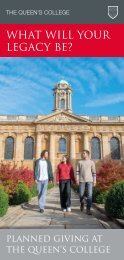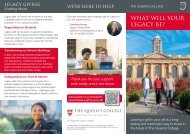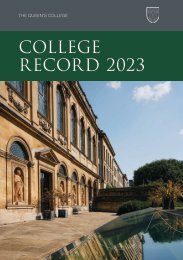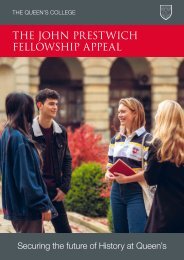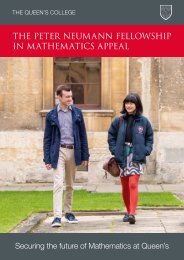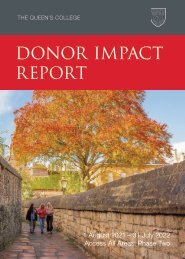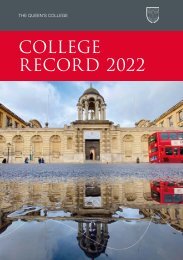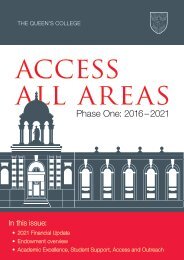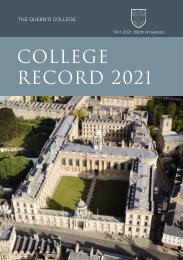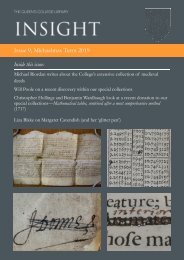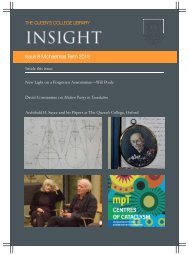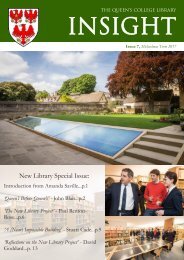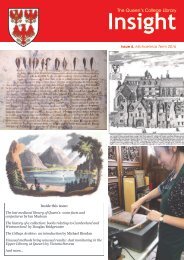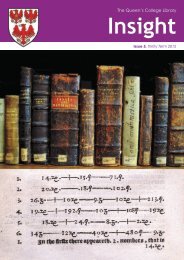The Queen's College Record 2020
Create successful ePaper yourself
Turn your PDF publications into a flip-book with our unique Google optimized e-Paper software.
Articles<br />
taken across different linguistic, societal and ethnic contexts, thus tackling issues of<br />
mental illness, class, and race. A similar attention towards non-dominant languages<br />
and cultures characterised Professor Karen Thornber’s contribution, which disclosed<br />
the role literature in translation plays in retrieving examples of non-Anglo-Euro-<br />
American medical practices. Karen Thornber, who is Harry Tuchman Levin Professor<br />
in Literature and Professor of East Asian Languages and Civilizations at Harvard<br />
University, proposed a solution to the health, environmental and racial issues gripping<br />
our society by tracing the model of a world policy of care (see her newly-published<br />
book Global Healing: Literature, Advocacy, Care, published by Brill in <strong>2020</strong>).<br />
In the fourth episode, I spoke with Eivind Engebretsen, Professor of Interdisciplinary<br />
Health Sciences at the Institute of Health and Society, University of Oslo. Professor<br />
Engebretsen offered the perspective of a scientist invested in humanities research<br />
that is not secondary, but fundamental to clinical advancements. He pointed out<br />
that medical discoveries, policy and practices are culturally determined; despite<br />
our common perceptions, science does not provide universal truth, and this is<br />
particularly evident in the case of face masks. <strong>The</strong> final episode was dedicated to<br />
the transnational paths of contagion seen through the lens of twentieth-century<br />
cinema. Kirsten Ostherr, the founder and director of the Medical Humanities Program<br />
and the Medical Futures Lab at Rice University, Texas, drew on her expertise as a<br />
media scholar, health researcher and technology analyst to discuss visual culture’s<br />
paradoxical power to represent the invisibility of infection.<br />
As emerges from this overview, Translating COVID-19 has been a profoundly<br />
collaborative endeavour, one that proved to be both challenging and enriching. It<br />
led me to unspecified destinations on a train I did not plan to catch, but on which<br />
I was not alone. I would not thank the virus or months of social distancing for this<br />
serendipitous diversion; rather, I would like to acknowledge the support of colleagues<br />
and mentors who make academia a place of renewal and transformation, and whose<br />
work shows us the many ways in which we, as humanists, are not just humanitarians<br />
but also medics in the face of the unknown.<br />
Sometimes we have no control over which train to take. Yet, we can decide how and<br />
why to wander.<br />
104 <strong>The</strong> Queen’s <strong>College</strong> | <strong>College</strong> <strong>Record</strong> <strong>2020</strong>




